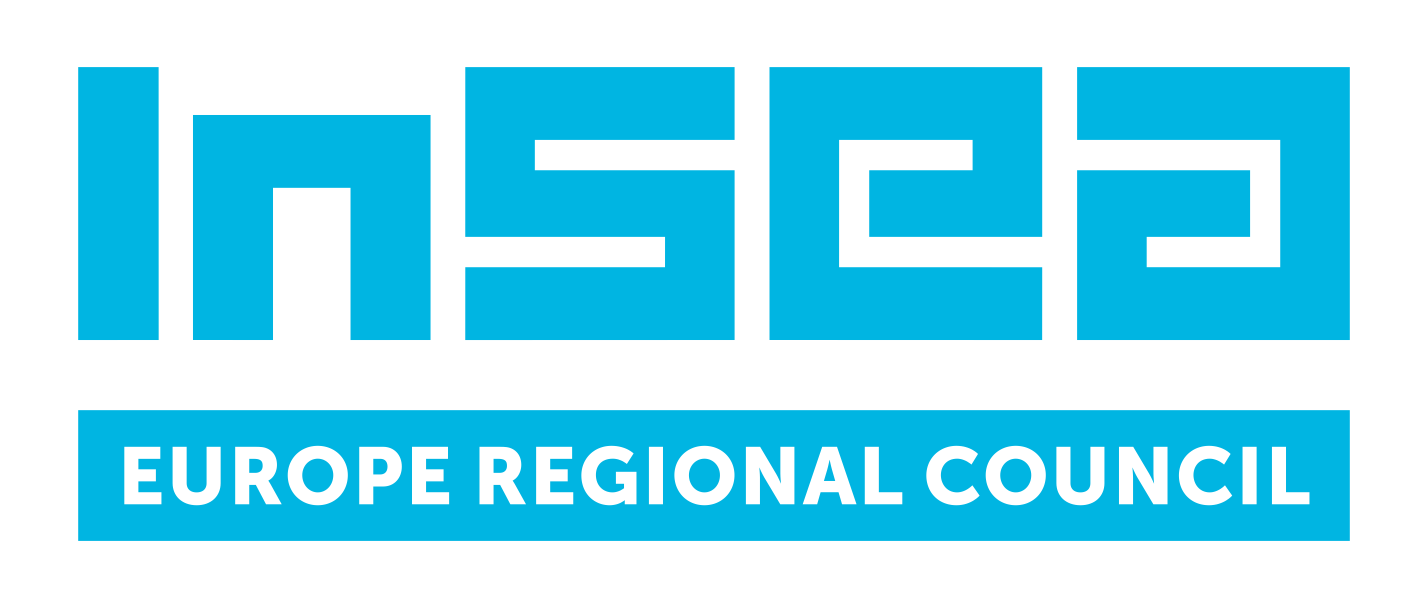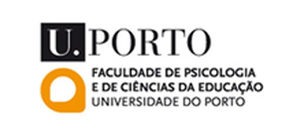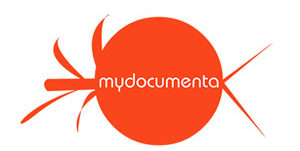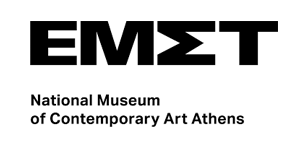
Casa da Imagem (House of Image) (CI-FML) is an artistic and educational centre, where media and visual literacy can be learned and explored by the community. CI-FML is part of a Foundation, Fundação Manuel Leão, a private, non-profit entity with public interest status, and is, therefore, committed in pursuing its goals and mandate. The Foundation organises its activities and initiatives in Vila Nova de Gaia since 1996 and its main purpose is the promotion of public good through the educational, cultural, artistic and socio-charitable domains. It was from the intersection of the two central pillars of the Fundação Manuel Leão, education and art, that Casa da Imagem emerged in 2011, offering a space of education and artistic activities, initiatives and endeavours.
SHARING EXPERIENCES
The main goal of CI-FML is to build a space for learning and sharing experiences through images. The concept of image presents itself as the ground in which our way of doing things can meet our need to affirm ourselves as persons, our relationship with others and with the world around us. CI-FML aims to create access to art and culture for the population that lives apart from the main city centres and has the goal to develop projects that address social matters that are and can be manifested through images (media and visual literacy).
CI-FML promotes activities based on sharing and practices that favour constant experimentation and the discovery of means, technologies and reflections that come to life through objects/actions. Learning takes place when we adopt an attitude of discovery, of exploration and deconstruction, of cooperation, of creating and sharing individual perceptions.
LATIS – ARTS, TECHNOLOGY AND SOCIAL INNOVATION LABORATORY focuses on research, development and application of artistic practices and cultural experiences that respond to multiple community demands (economic, social and environmental), in order to foster the construction of more inclusive, participatory and sustainable communities, always engaging multiple local agents. For the last few years has developed impact evaluation tools in order to analyse the social impact that cultural and artistic projects have within communities.
Fundamental Rights and Citizenship – legal literacy through image and arts researches and develops tools to foment legal literacy on human rights through a multidisciplinary approach. The main aim of this permanent residency is to foster a culture of rights and citizenship for youth, starting from pre-school children, crossing art and image as vehicles to promote and achieve legal literacy in the aforementioned domains. This is an ongoing collaboration.
THE TEAM
Inês Azevedo
Artist Educator. Educational background in Arts (Fine Arts graduation– Sculpture & Master in Contemporary Artistic Practices) and Education (Master in Teaching of Visual Arts).
Has been working and researching as an art educator since the year 2000, both in non-formal contexts, with local communities or museums, and in formal contexts, in close relation with schools, their teachers, students, staff and families, through arts based projects. Since 2011, started to develop the Casa da Imagem [House of Image] project, and more recently, its Museum. Researcher at CEAA-ESAP. Her main field of research is focused on the mediation process of people/communities relating to arts, education and museology.
Joana Mateus
Artist Educator. Educational background in Arts (Fine Arts graduation– Painting & Master in Art Multimedia) and Education (Master in Teaching of Visual Arts). Teacher of Visual Arts and of Photography (2003-2010) in several schools and in all years of the pre-university education, from the First Elementary School to the Secondary and Professional Education. Worked as assistant with several Portuguese artists in Portugal. Researcher at CEAA-ESAP. Individual and collaborative work in the art field of video and performance. Since 2011, started to develop the Casa da Imagem [House of Image] project, and more recently, its Museum.
Margarida Azevedo
Educational background in Economics, a PhD in Economic Sciences (Université Paris1-Panthéon Sorbonne), with the title ‘The evaluation of the social impacts of culture: Culture, Arts and Development’, a Master’s in Arts Management (City University London), and a specialisation in Creativity and Urban Political Strategies (Barcelona University). She has been working as a cultural manager consultant, consultant on the third sector, an urban regeneration developer (culture led regeneration) and guest lecturer. Her main field of research is focused on exploring and measuring the social outcomes produced by cultural experiences.
Alexandra Severino
Is a legal researcher and consultant in the fields of Humanitarian Law, Human Rights, and EU law. She holds a master’s degree in international Humanitarian Law and Human Rights and a specialisation degree in European Union Law. Alexandra is part of the European Platform of Learning Mobility (EPLM) and is a member of their Steering Group. With the EPLM, Alexandra has coordinated different researches mostly focusing on the social impact of learning mobility. Additionally, Alexandra collaborates as researcher in different projects with the Portuguese Youth Council (‘CNJ’) related to the youth field and with the United Nations Institute for Training and Research (UNITAR) as coordinator in the Online Learning and Education pillar, where she coordinates the academic partnership on Humanitarian Action and Peacebuilding (MA), teaches and develops research.

We are a Brussels based organisation that focuses on reclaiming (semi-)public space, turning it into true public space. We use this space in all possible ways. Be it as a classroom, a concert hall, a football pitch, living room or a kitchen. Anything goes, as long as it’s open to anyone willing to join.
Our lab is Abattoir: a 40 000 m2 area in the heart of Europe’s arrival city Cureghem (Anderlecht, Brussels), a heritage covered hall, a giant market receiving 100 000 visitors every week. We use the full potential of this space to develop projects, always focused on our keyvalues: MEET and SHARE. KOOKMET, mobile pop-up kitchens in the middle of the market, tries to learn young and old about the marvels of cheap and healthy food. KETMET, the biggest covered playground of the city, takes out it’s mobile PLAYBOXes every Wednesday.
LOKET is the go to place for people with great ideas but lacking the space to realise them. While the fruit and veggies that COLLECTMET provides, a project recuperating food from Abattoir markets, are an important lifeline for many people and families all over Brussels.
We’ve travelled to Madrid to see if our kitchens could find their place over there, and they did. In Edinburgh people are asking similar questions, We’ve been invited to Uruguay to see how to use our mobile tools to promote healthy food in local communities and recently we’ve been to Lebanon to explore what we could do over there.
We develop, design, build and produce everything in house or as local as possible. Not alone, but with a lot of help. A skilled staff ready to tackle any challenge, an army of volunteers who came to be our family and ad hoc specialists where and when we need them.
In short: we are cultivating urban space. Our tools and projects are at the disposal of all. Waiting to be shared, copied, improved or reshaped.
THE TEAM
Yannick Roels – Direction, Cath Claeys – Master of the Background, William Febiri – Team Chef, Philippe De Bont – Master of the grounds, Anaïs Perillat-Collomb – Dreamteam coach, Anne Watthee – La chica del cable y del arte, Victoria De Brabandere – Master of the Food (waste), Barbara Luypaert – Team coach.
Yannick Roels (1985) Firestarter. With a background as an Engineering-Architect he started his career developing urban public furniture and kickstarting social projects. After a passage at the Belgian Homeless Cup, setting up a local brussels division, he became co-costructor of Cultureghem combining his passion for building and social innovation.
Anne Watthee (1988) La chica des cable y del arte. Anne studied Theatre & Performance Studies and Cultural Management. She has worked at Het Theaterfestival for several years, and at the cultural center of Strombeek-Grimbergen. From 2013 until 2020, she was head of the Audience Development at the Kunstenfestivaldesarts. As such, she was in charge of deepening the experience of the audience (through organizing workshops, debates, etc.) as well as widening it, through community projects. She has joined the team of Cultureghem in october 2021 to further develop its cultural and artistic pillar.

The European Regional Council of International Society for Education Through Art (ERC InSEA) is the European branch of a wider community dedicated to advocacy, networking and the advancement of the development and research in visual arts education.
Through its affiliated organizations, ERC InSEA promotes conferences, congresses, seminars and webinars on arts education. ERC InSEA and its affiliates have staged regular regional and world conferences that have provided opportunities for scholars and practitioners around the world to reflect on the ways in which global changes are impacting the field of art education.
ERC InSEA provides a network for researchers and art teachers, launching calls and disseminating papers, articles, reports about projects both in research and practice about art education in the InSEA community.
THE TEAM
Prof. Dr. Ernst Wagner is lecturer and researcher at the Academy of Fine Arts in Munich, where he coordinates the project ‘Exploring Visual Cultures’. He was chair of InSEA’s European Regional Council from 2017 to 2022, linking the development of the “Common European Framework for Visual Literacy” closely to InSEA’s discourses in the context of ESD. His research explores on Visual Literacy, International Cooperation / Intercultural Communication, Heritage Education / Art History, and Education for Sustainable Development. Ernst Wagner studied art education at the Academy of Fine Arts in Munich and exhibited in Germany and the United States. He is graduated with a PhD in art history at LMU in Munich.
Ângela Saldanha, PhD in Art Education. Post doctoral studies in Digital Media Art has experience in digital communication; communication design. Cultural producer and developer of art education activist projects for social inclusion and disability study groups in APECV. She co-organized APECV annual congresses and InSEA seminars (InSEA seminar in Walvis Bay, Namibia 2018; InSEA seminar in Thessaloniki, Greece, 2018; InSEA European congress in 2015). Editor of Congresses Proceedings and E-books. She has experience in management communication and dissemination tasks from European Projects such as TEMPUS: ENHANCEMENT OF RUSSIAN CREATIVE EDUCATION: NEW MASTER PROGRAM IN DIGITAL ARTS IN LINE WITH EU STANDARDS [ENMDA];
Teresa Eça, PhD in Philosophy, Principal editor of the jounals Imaginar and Invisibilidades (APECV publications); co.editor of the the series Learning Through the Art (InSEA Publications).
Doctoral studies in Art Education Assessment; post doctoral studies in visual narratives of young people. Director of APECV training center. With experience in professional and research networks development such as the collective arteducativism C3 and the IberoAmerican network of Art Education. As Leader of the International Society for Education through Art.
Developer of art education activist projects for social inclusion and disability study groups in APECV. Creator of art education activist projects for social inclusion and disability study groups in APECV. Portuguese Coordinator of the European Projects ITEMS (2010-1-IT1-LEO04-00971 5) and Circle (2017-1-IT02-KA204-036912).

THE TEAM
Catarina Grande, Ph.D. in Psychology is an Assistant Professor of psychology in pre and post-graduate studies at FPCEUP and an integrated member of the CPUP. Her area of scientific activity is Educational and Developmental Psychology, Early Childhood Intervention and recently Pediatric Psychology. Her main research interest is preschool children with typical and atypical development and she has participated in different research projects in early childhood education and early childhood intervention. In terms of materials development, she turned research findings into practice in the creation of the Intervene More, Intervene Better practice guide for teachers of children with special needs. In terms of outreach, she has presented dozens of training and workshops for teachers and directors on quality improvement assessments and coaching, and also many workshops for parents of children with disabilities.
Joana Cadima, Ph.D. in Psychology is an Assistant Professorat FPCEUP and researcher at CPUP. Her research interests include teacher-child interactions and social relationships as contexts for child development in early childhood, social inequalities and sociocultural risk. She has participated in several research projects on early childhood education, focusing on preschool and primary school quality (e.g., CARE FP7 research project, http://ecec-care.org; QualityMatters https://www.fpce.up.pt/qualitymatters/ funded by FCT). She has conducted research involving children and youth from socially disadvantaged communities on tackling social inequalities European H2020 research project (ISOTIS research project http://www.isotis.org). She is also involved in two Erasmus+ projects on artistic workshops in multilingual classrooms (Articulan 2018-1-PT01-KA201-047392) and on citizenship (Bridging 2018-1-BE02-KA201-046844).
Diana Alves is an assistant professor at the FPCEUP. She is also a clinical psychologist at the Service of Psychological Intervention for Children and Adolescents at FPCEUP, where she coordinates the Specialized Unit of Learning Difficulties. She has been a consultant in several interventions in educational contexts aiming to promote the socio-emotional competences of children. She conducts research in the field of developmental psychology, as well as academic, social and emotional competence in children, having published both papers and book chapters. She is a board certified psychologist in Clinical and Educational Psychology by the OPP.
Rui Maio is a junior researcher at CPUP, who collaborates in #NmP. His research interests include intercultural education, school achievement and social inequalities. Previously, he has worked as project assistant at a non-profit association focused on the implementation of community initiatives, projecting them into a European dimension (e.g., Crossover research project, https://crossoverprojecteu.wixsite.com/site). He is also involved in an Erasmus+ project on artistic workshops in multilingual classrooms (Articulan 2018-1-PT01-KA201-047392)

MyDocumenta is an innovative Spanish SME focused on ICT and Education Culture. They are specialized in the development of a Life-Long Learning eportfolio ecosystem, multimedia web-based platform, online interactivity and digital tools for collaborative creation, among which the Portabily tool.
They also have expertise in the production and organization of exhibitions, training programs (online/onsite), dissemination programs and social participation campaigns.
Furthermore, through their cultural organization, KTON y CIA, they have also had successful projects with museums, cultural and educational organisations, such as the Joan Miró Foundation, Picasso Museum, Museum of Contemporary Art, La Pedrera (Caixa Catalunya Foundation), Teatre Lliure and they have also been responsible for the creation of online projects for the Spanish theatre group “La Fura dels Baus”. From 2011-15 they created an online course Discover Journalism with Rosa Maria Calaf, a course for schools of all levels and general public with more than 7.000 participants around the world.
THE TEAM
Andrea Contino
Is Co-founder and Director of Education at MyDocumenta. Honours degree in psychology from University of La Sapienza, Rome, and an MA in Art Education from the University of Barcelona. Expert in the integration of ICT in the classroom. Focused on research and practice in relation to educational innovation by exploring the relationship between ICT, art and pedagogy. Until 2006 he was a Professor of Art Education at the Academy of Fine Arts, Brescia (Italy) and coordinator of the Erasmus Project LABA during the period 2000-2006. He organized and directed art-education exhibitions in Italy and Spain.
Cristina Casanova (female)
Co-founder. Head of Product Development and Director of Technology. Degree in Fine Arts from University of Barcelona, European Media Masters, EMMA in Arts and New Technologies, from Universitat Pompeu Fabra and a postgraduate Diploma in Multimedia-Oriented Programming, UPF. Specialist in creating and developing multimedia projects and tools for the creation on the Internet. Responsible, for more than 10 years, for much of the collective Internet creations of La Fura dels Baus. Development of elearning environments for University of Barcelona, University of Lleida, Info Point Europe, etc. Development of multimedia creation tools for CaixaForum, La Pedrera.
Mirjam Hillenius
Is Project Manager at MyDocumenta. Graduated from the University of Amsterdam. Project manager of more than 30 European projects (FP5, FP6, FP7, AAL, H2020, EIP-AHA, EIT-Health). Since 2017 Project Manager at MyDocumenta, and currently coordinating 4 Erasmus+ projects and 1 Creative Europe project. Partner in several H2020 projects and Erasmus+ KA201 projects, among which #NarcissusMeetsPandora. Previously at Hospital Clinic/IDIBAPS and Erasmus Mundus Master BioHealth Computing and Master programs at the University of Barcelona.

The National Museum of Contemporary Art Athens (EMST) was founded in 1997 and began its operation in 2000. Its permanent home is the former Fix brewery on Syngrou Ave., Athens, Greece.
EMST has a collection of 1285 works by important Greek and international artists; 170 of them are currently presented in the museum’s permanent collection by artists such as Jannis Kounellis, Stephen Antonakos, Gary Hill, Vlassis Caniaris, Chryssa, Mona Hatoum, Emily Jacir, Ilya Kabakov, Βill Viola and others.
Among EMST’s basic aims are: the creation of collections of works of contemporary Greek and international art, the promotion and presentation of advanced and experimental artistic tendencies, the enhancement of the aesthetic and artistic cultivation of the audience and the development of scientific research on subjects of contemporary art history, theory and museology.
THE TEAM
Marina Tsekou is an Education Curator. She has extensive experience in designing and implementing educational programs and art projects specially tailored for school and a great variety of other groups, in the museum and outside its walls. In 2009 she developed the EMST Without Borders, an innovative, inclusive and participatory program for vulnerable groups, such as inmates, people with drug abuse problems, migrants, refugees, etc. Since then she is responsible for its implementation and the required collaborations with various educational, cultural and social institutions, NGOs etc. EMST Without Borders was awarded the ICOM – CECA Best Practice prize in 2012. Her last innovative project is Face Forward… into my home, an interactive art project engaging refugees and focusing on their stories. She is also a tutor for the Audience Development course at the Transforming Future Museum program, organized by the British Council.
Elisabeth Ioannides is an Education Curator and Art Psychotherapist at EMST. She studied Psychology and Fine Arts at Brandeis University in Waltham, MA, USA, received my M.A. in the History of Art from the Courtauld Institute of Art in London, a Post Graduate Diploma on Contemporary Art from the Sotheby’s Institute of Art in London, and an M.A. in Art Psychotherapy from the The Art & Psychotherapy Center (A.P.C.) in Athens, Greece. As Education Curator, she delivers educational programs to primary school children and vulnerable groups both within the Museum premises and outside, and holds tours to the Museum’s exhibitions. She also designs the educational leaflets that accompany the exhibitions. In 2017 she inaugurated together with Mrs. Aphroditi Pantagoutsou the innovative group art psychotherapy program “Exploring the Museum’s Images – Exploring My Image” which is held on a regular basis at the museum.
Schools, NGOs and other public or private institutions working with people at risk of social exclusion, are already connected and involved in the project. Some of these institutions have already been collaborating with the team.
As an example, the project will have EMST’s associated partner Mutifunctional Center of the Hellenic Red Cross, from The International Red Cross and Red Crescent Movement, with whom has already developed arts-based learning programs with the participation of groups of young refugees.
Other example is CERCI (Rehabilitation and Education Cooperative for Citizens with Disabilities) from the council JUNTA DE FREGUESIA DE SÃO JOÃO DA MADEIRA, with whom CI-FML has collaborated and whose public is one of the target groups, to include as participants in the project.
Also many of Cultureghem’s participants face social exclusion and socio-economic difficulties. Several of this partner’s activities are public projects that bring the neighbourhood together to create social cohesion, such as the Kookmet, to prepare meals collectively and Kookmet recup, an alternative food distribution platform to deliver healthy food to people in precarious situations.

